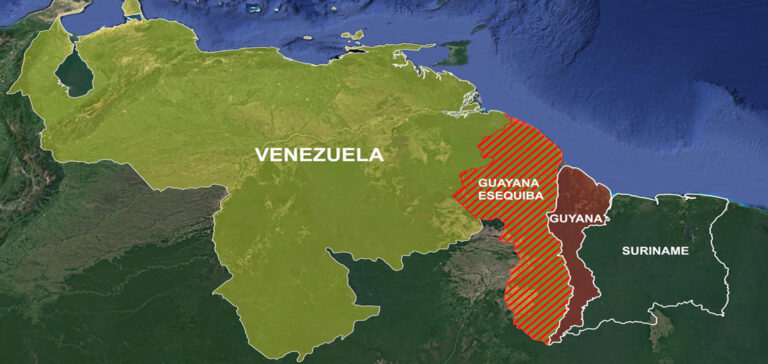A consultative referendum on the Esequibo will be initiated by Venezuela for December 3. It should be noted that Esequibo is a disputed region with neighboring Guyana. The National Electoral Commission, chaired by Elvis Amoroso, confirmed this decision after receiving the request from Parliament. The purpose of the consultation is to enable the Venezuelan people to decide on the “way forward” for Esequibo. The Esequibo conflict, also known as Guayana Esequiba, is a 160,000-square-kilometer territory currently administered by Guyana. It is rich in oil deposits, minerals and watersheds. Guyana, a former British colony, claims that the border between the two countries was defined in 1899 by a court of arbitration. However, Venezuela considers that the natural border is the Esequibo River, as was the case in 1777.
The stakes of the referendum
The Venezuelan National Assembly has activated the Constitutional Initiative to allow citizens to determine the path forward for the Republic. The President of the Parliament, Jorge Rodriguez, said, “It is essential to establish historical, geographical, economic and social truth in an indisputable way.” What’s more, Venezuela’s boundaries are those established in 1777. This decision is aimed at resolving a long-standing territorial dispute.
The dispute over the Esequibo has led to diplomatic tensions between the two countries since August. Guyana has over 10 billion barrels of oil reserves. It has also become a key player in the energy sector. Guyana’s president, Irfaan Ali, asserted that the Esequibo was “100% Guyanese” and that the country was clear about its borders.
This referendum should enable Venezuela to clarify its position on the Esequibo. At the same time, it will help him make crucial decisions about his future.
Final Analysis
Venezuela’s consultative referendum on the Esequibo raises important questions about the future of this resource-rich region. Venezuela is seeking to put an end to a long-standing territorial dispute with neighboring Guyana. The outcome of this consultation will have a significant impact on the region’s geopolitics and economy. It illustrates the importance of resolving territorial disputes peacefully and democratically.






















